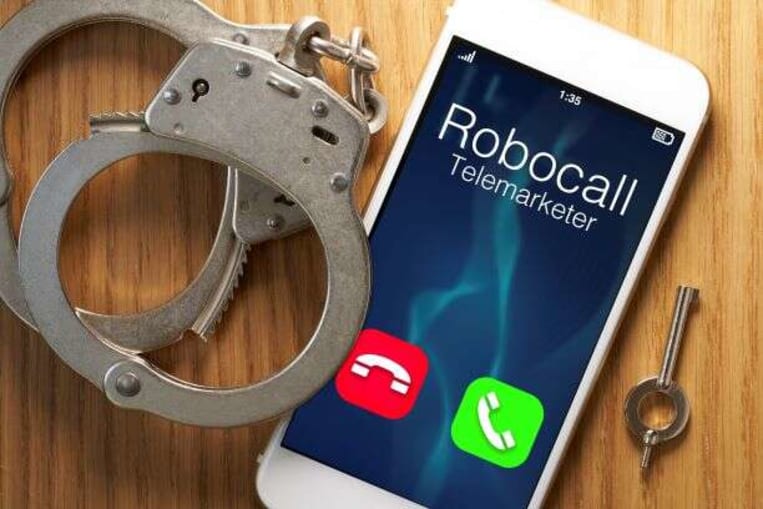
BBB Tip: How to spot and stop robocalls

(Getty Images)
Robocalls haven't taken a hiatus during the COVID-19 pandemic for both consumers and businesses. The Federal Communications Commission (FCC) cracked down on the scam callers, and creative, tech-savvy individuals are coming up with ways to block the calls using call-blocking apps. Cell phone providers are also offering blocking services.
What’s a robocall?
If you answer the phone and hear a recorded message instead of a live person, it's a robocall. Calls use a computerized autodialer to deliver a pre-recorded message to a home landline or wireless number. Many different scams use robocalls, from bogus companies claiming to lower utility bills or credit card rates, government grants, extended vehicle warranties, vacation packages and calls from individuals posing as IRS agents.
What types of robocalls are allowed?
Recorded messages regarding candidates running for office are allowed, as are messages from charities asking for donations. Messages that are solely informational, for example a reminder from the doctor’s office, are permitted. Prerecorded messages from banks and telephone carriers also are exempt from these rules, if the organizations make the calls themselves.
Canadian laws differ slightly. Robocalls from charities and political candidates are also allowed; however, calls from telemarketers are only allowed if you have an existing business relationship, such as having recently made a purchase or inquired about a product. Read Canada’s detailed regulations here.
How do I know if a robocall is illegal?
In the U.S., an immediate red flag is if the recording is a sales pitch and you haven’t given your written permission to receive calls from the company on the other end, the call is considered illegal.
A telemarketer must have written consent, through paper or electronic means, to receive a call or message. Simply buying a product, or contacting a business with a question, does not give them legal permission. Telemarketers must also allow people to opt out of receiving additional telemarketing robocalls during a prerecorded telemarketing call through an automated menu.
How to avoid robocall scams:
The Federal Trade Commission recommends three key steps consumers can take to help reduce unwanted calls: Hang up. Block. Report.
- Hang up. If you pick up the phone and get a recorded sales pitch, hang up. The call is illegal. Don’t speak to them. Don’t press a button to supposedly remove your name from a list, as that could result in even more calls. Hang up. Furthermore, alert your employees that if they see a call that says it’s from the IRS or Social Security Administration, don’t trust it. Scammers know how to fake the Caller ID information.
- Block. Reduce the number of unwanted calls by using call-blocking technologies available through phone providers. Options will differ depending on the model of phone, service provider and if a traditional landline or internet phone service is used. Visit ftc.gov/calls for advice.
- Report. After hanging up, report the unwanted or illegal call to the FTC at ftc.gov/complaint. The more information they have about the call, the better they can target law enforcement efforts.
What you can do to stop robocalls:
Consumers can help the government combat robocall scams by reporting the calls they receive.
Follow the FCC guidelines and advice regarding robocalls. Additional information can be found on the FCC Consumer Help Center.
The Federal Trade Commission initiative provides telecommunications companies and other partners with known robocallers’ telephone numbers every day. Report a scam call here.
In Canada, residents can also report illegal robocalls to the National Do Not Call list to file a complaint.
Consumers can also report robo calls to BBB.org/ScamTracker. BBB shares Scam Tracker information with government and law enforcement agencies, so every piece of information is helpful in tracking down scammers.
Thanks to the BBBs of East Texas, Connecticut, Knoxville, Chicago, Abilene, and Cleveland for your contributions to this article.
Related News
Still Need Assistance?
Contact Your Local BBB
Your local Better Business Bureau can assist you with finding businesses and charities you can trust. Start With Trust®.
Additional Resources
Central Ohio BBB Business Podcast


